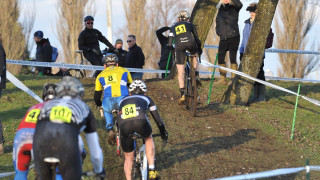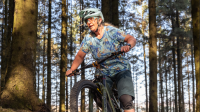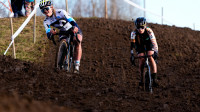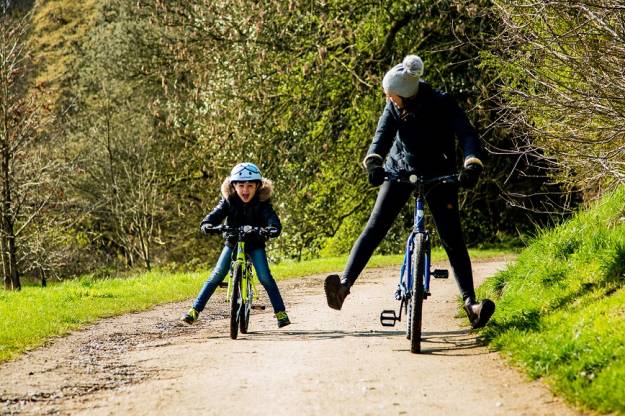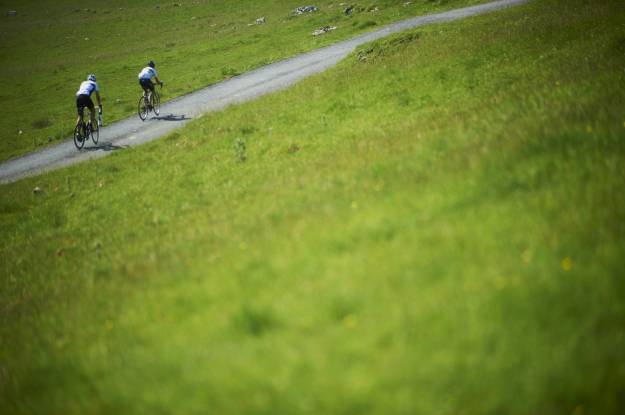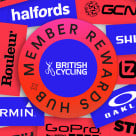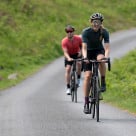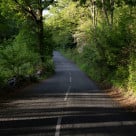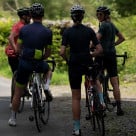Knowledge Level: Intermediate
The combination of a mid-morning start, travelling to the event and the high intensity nature of the racing can make getting your race day nutrition for cyclocross tricky. You don’t want to eat too much too close to the race and risk feeling bloated or nauseous but equally, you don’t want to underperform because you’ve consumed to little. Fortunately, Healthspan Elite, the Official Sports Nutrition Partner and Official Vitamin and Supplement Partner to the Great Britain Cycling Team and British Cycling, is here with some advice.
The night before
Eat normally the day before a cyclo-cross race but pay particular attention to hydration. You want to make sure you’re optimally hydrated in the 24 hours leading up to a ride rather than having to try and play catch-up in the morning which can lead to you needing the loo more often than normal. Avoid eating too late or it might impact on the quality of your sleep.
There’s no need for the vast plates of pasta commonly consumed in the name of the outdated concept of “carb loading”. Your body can only store a finite amount of energy in the form of glycogen and your normal diet should mean that it’s more than likely already full. Don’t forget that a cyclo-cross race will only be 30-60 minutes long.
Avoid heavy and hard to digest red meat but instead opt for lighter proteins such as chicken or fish. Don’t overdo the fibre and steer clear of highly spiced food. Some carbohydrates, in the form of pasta, rice or potatoes, are great but remember you don’t need to go mad.
A sour cherry product can help with sleep.
0700
For a cyclocross race starting at 1000, a 0700 breakfast will allow you three hours to fully digest it. You don’t need to eat a huge amount but equally don’t want to be feeling weak or hungry on the start line.
Some muesli with yoghurt, a small bowl of porridge, poached eggs on toast or even a banana and oat smoothie can all work well. Remember it’s likely to be cold so choosing a hot option can give you a warming boost.
All riders are different and, something that one rider can happily tolerate, can leave another feeling nauseous, bloated and sluggish. Experiment with what works for you in training or before less important events and, once you find something that works, stick with it. As well as your coffee, sip throughout the morning on a 500-750 ml bottle of isotonic sports drink.
0800-0900
During your journey to the race, keep sipping at your water bottle. Arriving at the Race HQ, sign on, pick up your race number, double check your race start time and get your warm-up kit on.
0920-0945
Ride your warm-up on the course if possible, to become familiar with it and keep a bottle in your jersey or jacket pocket to take occasional sips from between harder efforts. Aim to finish your warm-up 15-20 minutes before the start of the race. You might want to take an energy gel at this point and some riders like to use some caffeinated gum. This will leave you time to strip down to your race kit, make any last-minute adjustments to tyre pressure based on your warm-up laps and have a final loo stop before heading to the start.
The Race: With a typical cyclocross race lasting between 30-60 minutes depending on your race category, you shouldn’t need to, and probably won’t have the opportunity, to take on any food or drink during the event.
Post-Ride
Finishing your race before 1100, it’s not optimal in terms of recovery to wait until lunchtime to eat but you don’t want to double up on a full meal either. Have a protein drink made up and ready to go at the finish line or back at your car. You can sip at it while cooling down. You probably won’t feel like eating immediately after a hard race but it’s important, ideally as soon as you finish, to kick start your recovery and protein is key to this.
You should aim to have your lunch, containing protein and carbohydrates, within 2-3 hours of finishing your event. A tuna sandwich or chicken and pasta would be good. Remember, even though your ride was hard, it won’t have been that long, so there’s no need to eat excessive amounts.

